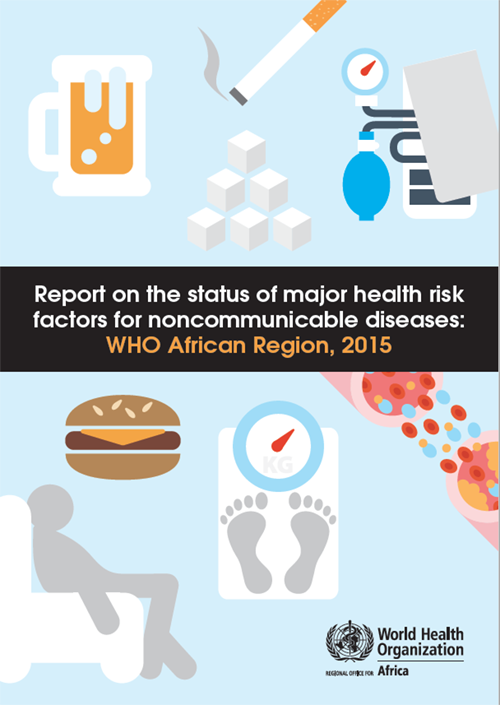
Report on the status of major health risk factors for noncommunicable diseases: WHO African Region, 2015
The burden of noncommunicable diseases (NCDs) in the WHO African Region is gradually increasing and is predicted to overtake the burden of mortality and morbidity from communicable diseases by the year 2030 (1). The World Health Organization (WHO) projects that globally, deaths from NCDs will reach 44 million by 2020, representing an increase of 15% from the 2010 estimate. WHO estimates that about 4 million NCD-related deaths will occur in the African Region by 2020.
The leading NCDs of this Region are: cardiovascular diseases, diabetes mellitus type 2, chronic obstructive lung disease, and cancer. The four key risk factors for these NCDs are: tobacco use, harmful use of alcohol, unhealthy diet and physical inactivity. The four intermediate risk factors are: obesity, high blood pressure, raised blood sugar and high cholesterol.
One of the key global objectives for combatting NCDs is to promote effective interventions to prevent and control these risk factors for NCDs (2). To this end, WHO adopted the Framework Convention on Tobacco Control (FCTC), a strategy for the reduction of harmful use of alcohol, and the Global Strategy on Diet, Physical Activity and Health (DPAS).


